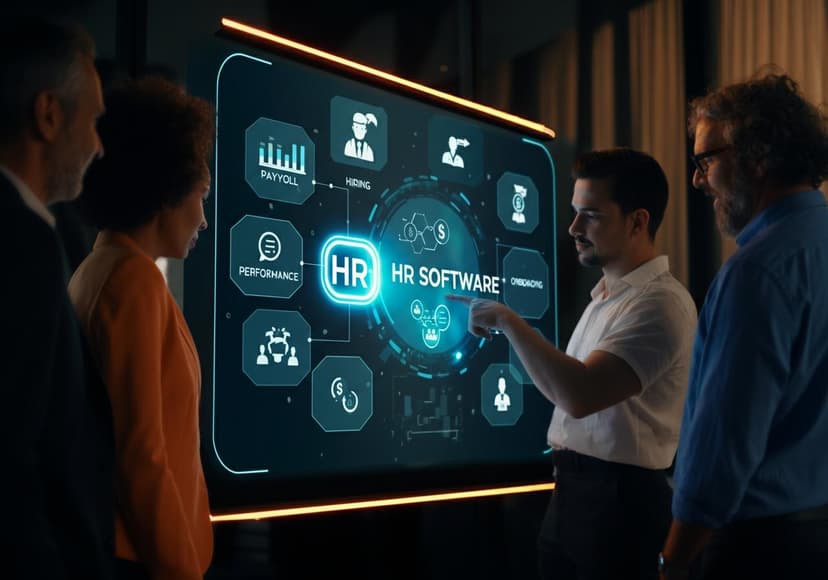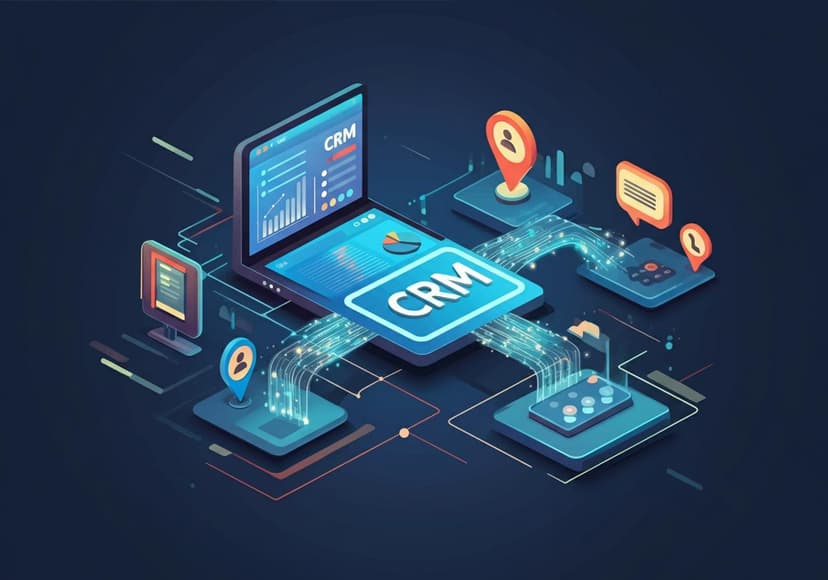Choosing The Right Hr Software For Your Small Business
Small businesses should consider HR software that improves efficiency, reduces costs, and simplifies HR processes.
When running a small business, you quickly realize that managing human resources can be overwhelming. The right HR software can make all the difference in streamlining your processes and allowing you to focus on what you do best. In this article, we’ll explore how to choose the best Human Resources Software for your needs, outlining the must-have features to consider.
Identifying Your Needs
Before diving into the sea of available HR software, it’s essential to identify your business needs. Are you primarily looking for payroll software? Or do you need a complete HR management system that handles everything from employee onboarding to performance management? By understanding what functionalities you require, you can narrow your options significantly.
Key Features to Look For
When evaluating different options, certain features can significantly enhance your HR operations. Here are a few critical components to look for:
- Applicant Tracking System: This feature simplifies your recruiting process, enabling you to manage applications, track candidates, and streamline interviews.
- Time and Attendance: Keeping track of employee hours is crucial. Look for software that simplifies this process and integrates with payroll.
- Benefits Administration: Managing employee benefits may appear tedious, but a good HR system can automate much of it for you.
- Performance Management: A solid HR software should include tools that help you set goals, conduct reviews, and manage employee performance effectively.
- Talent Management: Actively fostering employee growth and development is vital, so ensure that your chosen software supports mentoring and training.
Standalone vs. Integrated Solutions
Depending on your needs, you may choose between standalone applications or an all-in-one HR solution. Some businesses may benefit from using various specialized system tools, such as recruiting software and HRIS that manage employee records. However, an integrated solution that covers all aspects of HR management can often save time and allow for more streamlined processes. A great reference for such integrated systems can be found here.
Scalability and Ease of Use
For a small business, choosing software that can grow with your company is critical. Look for systems that allow you to add new functionalities as needed without a complete overhaul. Furthermore, the software should be user-friendly; your team shouldn't need extensive training to use it effectively. Many small business owners opt for systems that are intuitive and require minimal setup time. If you’re on the hunt for such solutions, consider reading up on options at this resource.
Budget Considerations
Cost is always a factor for small businesses, but you're going to want to ensure you’re getting value for your investment. Evaluate not just the upfront costs, but also ongoing expenses such as subscription fees, training, and support. Some systems offer a free trial, allowing you to gauge whether the software meets your needs before fully committing your budget. Remember, the right HR software can save you hours and potentially large sums in inefficiencies, so it’s worth weighing your options carefully.
Security and Compliance
In the digital age, data security is paramount. Your chosen human resources software will handle sensitive information, so prioritize systems that offer robust security features. Check for data encryption, compliance with regulations such as GDPR, and the company's reputation regarding data breaches. A secure system not only protects your business but also builds trust with your employees.
Integration with Existing Tools
You'll probably want your HR software to integrate seamlessly with other tools you're already using, such as accounting or project management systems. Compatible software can lead to smoother workflows and enhanced data accuracy. The better your systems work together, the less time you'll spend inputting data manually. Always check compatibility features when making your decision.
Customer Support and Training
Finally, customer support is an essential factor that shouldn’t be overlooked. Ensure that the company provides accessible and reliable support options. Additionally, consider whether they offer training resources that can help your staff become proficient quickly. Once you’ve invested in a software solution, you’ll want to get the most out of its offerings, and having solid support can facilitate this greatly.
Final Thoughts
Choosing the right HR software is a pivotal decision for your small business. As you navigate the options and features available, remember to take your time and consider what best aligns with your current and future needs. For more comprehensive insights into selecting the right HR tools, check out another guide here. Taking a strategic approach to your HR software selection can lead to improved efficiency, better compliance, and a happier workforce.

Posts Relacionados

5 Ways Crm Can Help Hvac Contractors
Enhance customer relationships, streamline operations, and boost profits with effective CRM for HVAC businesses.

Favorite Software Development Companies For Startups
Startups need reliable software development companies to build their products and scale their businesses effectively.

How Crm And Lead Management Can Boost Your Business
Effective CRM and lead management strategies enhance client relationships, optimizing sales and improving overall business performance.